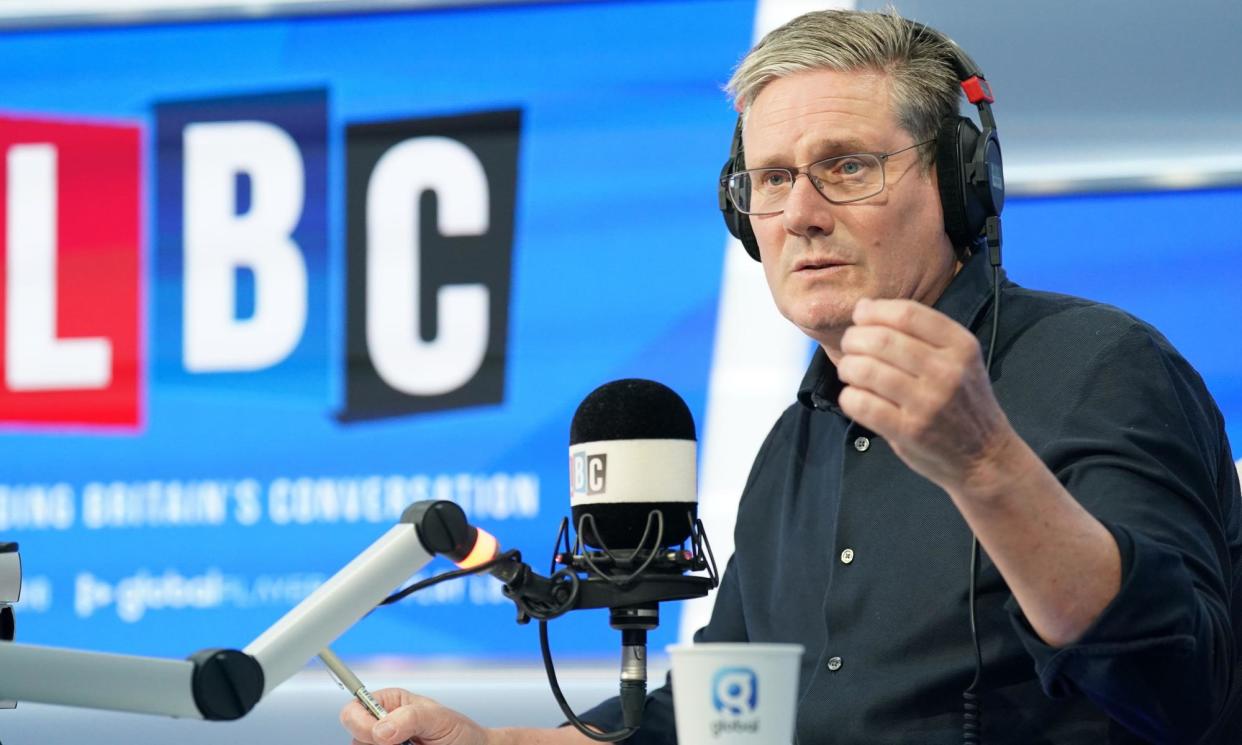Labour sends activists to 13 seats where it fears losing Muslim voters over Gaza

Labour is directing activists to campaign in seats with substantial Muslim populations, over fears that some voters have been alienated by the party’s stance on Gaza.
Its campaigning efforts are mostly being concentrated on Conservative and SNP seats in an attempt to secure a potentially record-breaking majority. However, there are 13 Labour-held seats where Muslims make up at least a fifth of the electorate which the party is telling its activists to target.
George Galloway’s victory in this year’s Rochdale byelection, and a slump in the Labour vote in Muslim areas at last month’s local elections, sparked concerns within the party that some Muslim voters are ditching Labour over its position on Gaza and initial reluctance to call for a full ceasefire – in particular, leader Sir Keir Starmer’s comments last October in an interview on LBC, in which he said Israel “has the right” to withhold power and water from Gaza.
Starmer later clarified that he believed Israel had a “right to self-defence” but should not withhold humanitarian aid.
Labour’s website invites prospective canvassers to submit their postcode and then suggests up to three target seats for them to campaign in – sometimes seats dozens of miles away.
Of the 28 constituencies in England where Muslims make up at least a fifth of the electorate – all of which were won by Labour at the 2019 general election, including Rochdale – the website directs volunteers to campaign in 13 of them, including three of the four Birmingham seats on the list, both Luton seats, and both Bradford seats.
But the Labour website only directs volunteers to one of the 11 London seats with large Muslim populations – Bethnal Green and Stepney, the successor seat to Bethnal Green and Bow, which Galloway previously won from Labour in 2005 in the wake of the Iraq war.
Despite the party’s apparent nervousness about whether Muslim voters will stick with it, last week a Savanta poll for the Muslim news site Hyphen found that 63% of Muslim voters plan to vote Labour, which Hyphen described as “relatively unchanged” since last autumn.
The Savanta poll found that the three most important issues for Muslim voters at this election are the NHS, cost of living and the economy. One in five Muslims surveyed ranked the Gaza conflict as their main concern, with 44% ranking it among their top five concerns. The equivalent figures among all British voters are 3% and 12%.
Sunder Katwala, director of the thinktank British Future, told the Observer: “I think it makes sense for [Labour] to worry, and to be seen to worry, and to be putting energy into it. Across the whole of British society, this is the demographic group where it’s most likely that Labour might slip backwards in support, not gain in support.
“The evidence in the local elections was of a surprisingly big impact. And the evidence in the national polling is of a surprisingly small impact. And that might be because voters are thinking strategically about the use of different elections.”
According to the Savanta poll, 86% of those Muslim voters who rank Gaza as one of their main concerns would consider voting for a pro-Palestinian independent candidate running on that issue. An organisation called the Muslim Vote has endorsed a list of alternative candidates to the two main parties in a range of seats with large Muslim communities, based on their support for a ceasefire in Gaza, a Palestinian state, sanctions on Israel, action against Islamophobia, and funding to tackle inequities.
Katwala said Labour would be trying to persuade Muslim voters both with its general message of change and overall policy offer, and its specific manifesto policy to recognise a Palestinian state as part of a two-state solution.
“The Labour party is losing votes among Muslims and not any other group, but is probably more popular among Muslims than any other section of the electorate,” he said. “I think the [Muslim] student active group is deserting Labour, and their mums and dads and grandparents are probably sticking with Labour much more.”
The Labour party has been approached for comment.

 Yahoo News
Yahoo News 
